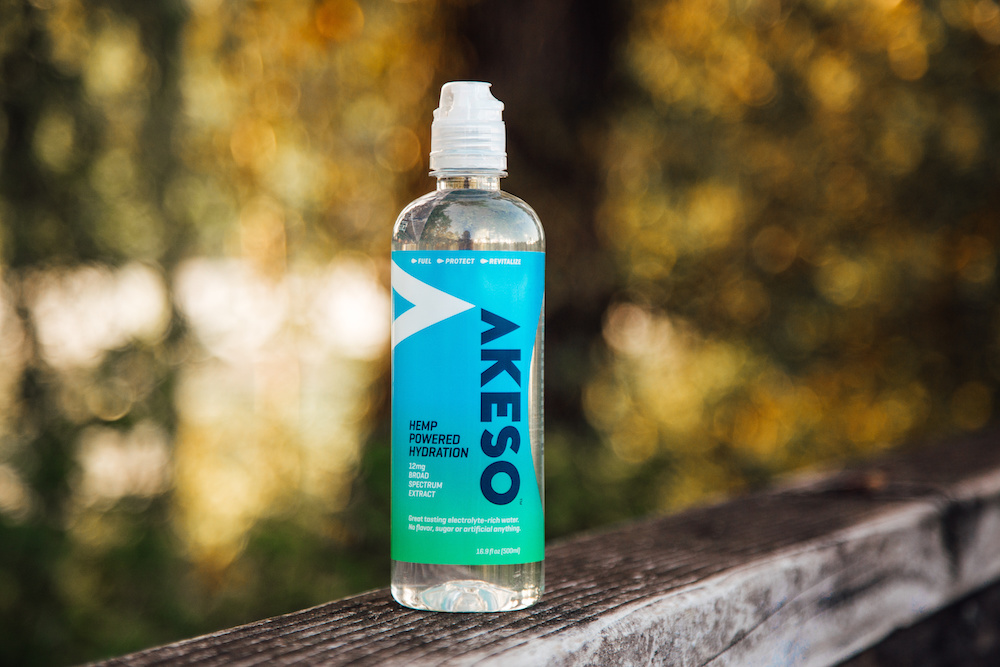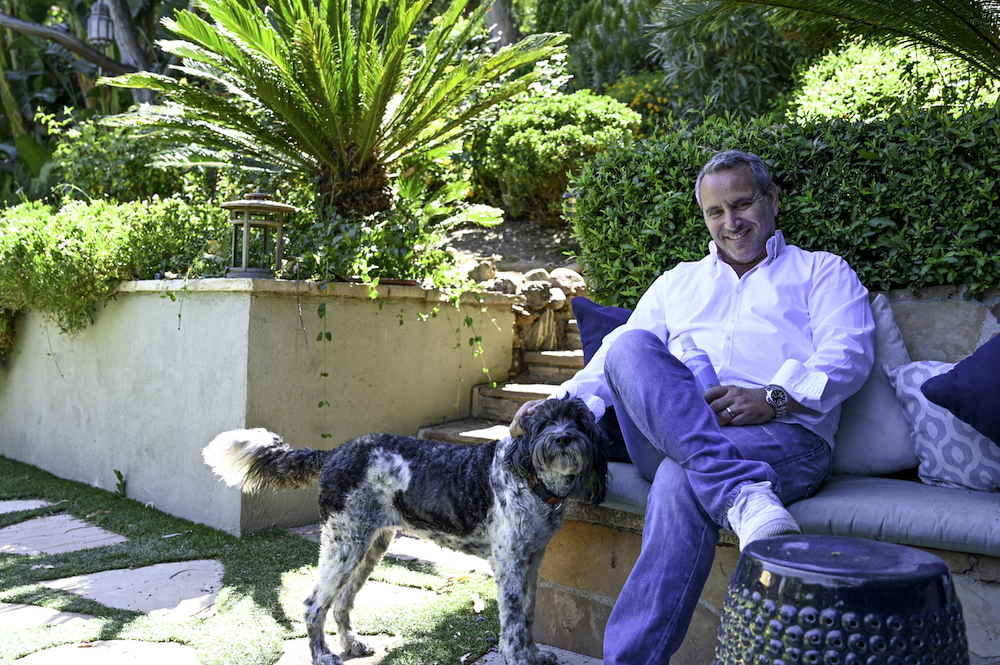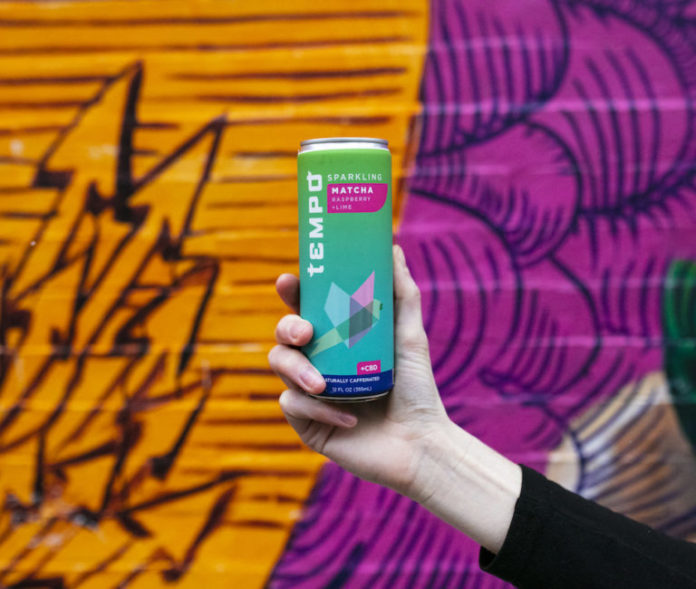As the legal cannabis boom continues in America, nonalcoholic CBD beverages are gaining shelf space.
These are part of the overall CBD category, which has an estimated global market size of $9.3 billion in 2020. By 2025, the market is forecasted to reach $23.6 billion.
How much of that will be beverage? Ryan Crane, founder and CEO of the CBD beverage brand Tempo, thinks CBD beverages could become a $3 billion annual market.
“Beverages are one of the fastest-growing parts of this landscape,” he says. “There’s this huge trend overall right now towards functional beverages. People are thinking more about their health as part of their lifestyle. And with CBD, it’s a sign of the times: people are stressed, and they’re willing to invest for premium ingredients that support their cognitive wellness.”
CBD Benefits
CBD is short for Cannabidiol, one of more than 100 cannabinoids (or compounds) present in a cannabis plant. CBD oil derives from the flowers, leaves and stems of the plant, while hemp oil commonly comes from the seeds. Importantly, neither is intoxicating, unlike their fellow cannabinoid THC. Taking CBD can actually counteract the psychotropic affects of THC. (THC originates most frequently from the flowers of female marijuana plants.)
Medically, CBD is verified as an effective treatment for seizures. Beyond that, other health benefits are not (yet) officially recognized. Many people believe that CBD is applicable in reducing stress and pain, and promoting sleep. In this way it could serve a daily function.
“I take my product as a daily supplement,” explains Todd Waks, Founder of NXT Water, whose portfolio includes the hemp-derived CBD water Akeso. “We didn’t make a carbonated beverage; we made an odorless, tasteless water. Water is the most essential element you put in your body. Bottled water is the number one consumer beverage in the U.S. Bottled water performs a functionality.”

“Right now, 99.99% of adults are stressed out,” he continues. “Anxiety is one of the biggest antagonists against your immune system. And people really need to be concerned for their immune systems these days.”
A number of CBD drinks contain caffeine. This plays into the interaction between the two substances: ease of mind, energy in body.
“That’s a great combo,” explains Ryan Lewis, CEO of the producer and wholesaler Global Cannabinoids. “CBD has a way of reducing the jitters associated with caffeine. And it’s amazing for sleep. I think you’re going to start seeing more CBD beverages used for nighttime relaxation.”
Tempo cans a CBD beverage with caffeine.
“You typically hear the words ‘relax’ and ‘sleep’ used with CBD, and those two are not usually used in the same sentence as caffeine,” says Crane. “But those times of day when people drink coffee, they usually also want to feel less stressed and more focused. CBD with caffeine is a more levelheaded version of relaxation. People can function more creatively and feel more motivated.”
“CBD and caffeine are complimentary inputs towards the same goal,” he adds.
Why Beverages?
CBD comes in many forms. To what advantage are beverages?
One is mobility. Like the can movement sweeping through alcohol, putting CBD in an easily transported drink is more convenient for consumers. And drinking one of these beverages in public is arguably less awkward of an experience than popping a gummy, or placing oil onto your tongue with an eyedropper.
“Beverages are a great way to get a dose of this healthy ingredient,” says Crane. “Health-wise, beverages are a better fit than chocolate or a cookie. And you don’t have to worry about smoking it, or measuring it as a function of time as you would when taking it through a dropper.”
“Beverages are clean, easy and something you can enjoy consuming,” he adds. “It’s a great avenue for people to get CBD into their every-day lifestyle. Also, beverages tend to have stronger consumer loyalty than other consumer segments.”
One reason behind the recent rise of CBD beverages is better technology. For many years, water could not so easily contain CBD. The cannabinoid became unstable.
“In 2015 was when the first water-soluble CBD was introduced,” recalls Lewis (who has a book out on this broader topic). “In the beginning, advancement in this technology was tough because the ingredient was so taboo.”
Changing attitudes towards cannabis opened more pathways for research and development. This includes with cans.
“Packaging can reduce CBD content,” says Crane. “A water-soluble CBD emulsion could interact with the lining of an aluminum can. It depends on the emulsion and the can, but the CBD could stick to the liner of a can.”
As technology in the industry continues to improve, so will the beverage products.

Industry Issues
CBD beverages suffer the same problems that hamper the broader cannabis market. Among these is the large number of investors who all jumped into this emerging industry in the early stages. This caused a glut of new products — not all well made.
“CBD got massively far ahead of itself,” says cannabis investor Carlton Fowler of Goat Rodeo Capital. “It tried to get into the health food store before it did the massive work to establish a consumer category.”
Instead, some brands focus first on quick profit. Compounding this problem is a lack of FDA oversight for industry standards. The result is subpar products with misleading packaging.
“A lot of players entered into this space without having any business of being here, and they did not do this industry any favors,” says Waks. “They would say whatever they needed to say to get the consumers to buy the product. That’s not okay.”
The Certificate of Analysis (COA) on CBD branding lets consumers know the authenticity and amount of CBD in the product. A COA is supposed to represent the results of an independent laboratory test. But, Waks warns, COAs can be faked through dishonest or nonexistent labs. And, again, improper lining can reduce CBD content in products below the percentage printed on a label.
“That’s why transparency is everything in this industry,” Waks says. “CBD is about wellness, and that means we should be held to a higher standard.”
Accordingly, NXT Water is 100% verifiable through a QR code on the branding that takes consumers to a Blockchain-verified, seed-to-sale website that shows the COA results.
“Like with any industry, the cream rises to the top,” Waks says. “The peripheral players in this industry are not going to survive.”
In the meantime, the industry remains somewhat chaotic without greater federal oversight. Change in that regard is unlikely imminent. Input from the FDA has been slowed by the Covid-19 pandemic, which is taking a toll on the entire category.

“Everybody is disappointed that we still have not received a ruling on CBD safety regulations from the FDA,” says Fowler. “And now the whole world has become risk-off. I know all the big beverage companies are looking into CBD, but a lot of big projects got shelved by Covid.”
“It will likely end up being the job of a PepsiCo or another big company to educate the consumer about CBD,” he adds, “but those companies are now waiting into 2021, if not 2022, to see who survives.”
Consequently, consumer education lags behind the category’s growth.
“Consumers need to understand that CBD is an ingredient, not an industry,” says Fowler. “They need to understand that CBD has active effects that are not psychoactive.”
Crane, of Tempo, agrees.
“Better consumer education is necessary,” he says. “It’s really important that consumers understand what and why they’re consuming, and also the limitations of CBD — what it may or may not be good for. I don’t think that story is being consistently told right now. I think there are still too many sensational headlines about CBD.”
“Consumers still don’t know who to trust in CBD,” Crane adds. “There are still too many bad actors not testing their CBD properly, not putting enough CBD in their beverages, or packaging it incorrectly in a way that can strip out the CBD.”
Which is why so many industry members beat the drum of better transparency.
“I’m in favor of CBD being put on the same level of regulation as nutritional supplements, as the FDA has suggested,” Waks says. “When the FDA comes out and sets a bar in terms of what’s in these products, lab testing and their transparency, NXT Water will easily clear that bar.”
“The fact that FDA oversight has taken this long is mindboggling,” he adds. “It points to the incredible level of dysfunction associated with the cannabis industry.”
Waks wonders whether larger manufacturers of THC products, along with Big Pharma companies, are politically motivated to slow the federal oversight — and therefore the growth — of CBD.
“Big Pharma doesn’t want CBD to succeed because it’s going to eviscerate the over-the-counter anti-inflammatory market,” he says. “And the cannabis people are not in lockstep with the CBD people because the cannabis people want CBD to have the same oversight as cannabis. But CBD is not the same as cannabis.”

What’s Next?
The entire category awaits further FDA guidance — including officially recognized terminology.
“People still don’t know the difference between hemp extract and CBD,” says Crane. “We’re still in a murky landscape because of a lack of clarity around products and ingredients, and that has perpetuated a negative stigma.”
“Right now, the onus remains on the customer to figure out who and what they should trust,” he adds. “There is no standardization whatsoever in how these products are being presented.”
Tempo, like other brands leading the charge for transparency, prints QR codes on the product labels. These codes links to cannabinoid testing results from third-party labs. It’s a measure of reassurance for consumers — and a potential standard that the FDA could require for this fast-growing industry.
“I can’t imagine that the Fed won’t eventually regulate this correctly,” says Fowler. “There’s no reason not to. When we’re not in the middle of a pandemic or an election, I see the Fed doing what it should do.”
“I remain incredibly bullish over time in CBD,” he adds. “For it to grow more we still need sips to lips. There is no magic pill to making a category succeed. It takes time to sample the right number of consumers.”
Until then, expect more confusion from consumers — but also plenty of people who become interested in the positive effects of CBD.
“This industry is still in its infancy and it’s exciting,” says Lewis of Global Cannabinoids. “There has already been a lot of challenges that we’ve overcome. People are becoming more and more aware of the health benefits of CBD. Some day, people will definitely have CBD in their diet as a supplement as beneficial as vitamins.”
Kyle Swartz is editor of Beverage Dynamics magazine. Reach him at kswartz@epgmediallc.com or on Twitter @kswartzz.










